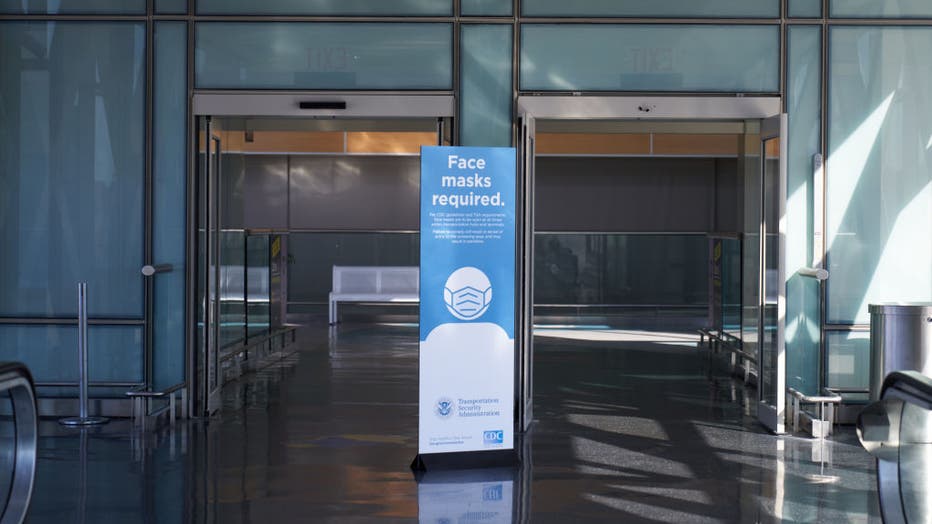Mask-wearing cuts new COVID-19 cases by 53%, global studies suggest
Wearing a mask to reduce the spread of COVID-19 was found to cut the number of new infections by 53%, according to new research compiled by a team that analyzed results from several related studies worldwide.
The new findings, published Thursday in the "British Medical Journal," focused on studies related to pandemic precautions, such as handwashing, mask-wearing and physical distancing.
Such public health measures are known to be beneficial in fighting respiratory infections — including influenza. But a lack of good research in this space "is a pandemic tragedy," researchers argued in a linked editorial.
The team noted that just 4% of global research funding for COVID-19 has been put toward public health measures.
Nearly all the studies analyzed by the team were observational and carried out in Asia, the U.S., Europe, the Middle East, Africa, South America and Australia. In total, 72 studies met the team’s criteria — of which 35 evaluated individual public health measures and 37 assessed multiple public health measures.
Results from eight of the 35 studies focusing on individual public health measures were analyzed in detail, which indicated a 53% reduction in new COVID-19 cases from mask-wearing, according to the authors.
In one study across 200 countries, there were nearly 46% fewer COVID-19 deaths where mask-wearing was mandatory, according to the authors. Another study in the U.S. reported a 29% reduction in new COVID-19 cases in states where masks were mandatory.
The research team, which included public health and infectious disease specialists in Australia, China and the U.K., said they couldn’t evaluate the impact of the type of face mask worn — such as a fabric face-covering compared to a surgical mask. They also couldn't analyze the frequency of mask-wearing or overall compliance of wearing them due to a lack of data.

FILE - A sign reminds travelers to wear a face mask in the international terminal at Logan International Airport (BOS) in Boston, Massachusetts, on Nov. 8, 2021. Photographer: Allison Dinner/Bloomberg via Getty Images
Among five studies that assessed physical distancing, the research team found a 25% reduction in the rate of new COVID-19 cases. A study in the U.S. showed a 12% decrease in virus transmission, while another study in Iran reported a reduction in COVID-19 mortality, the authors wrote.
Handwashing was also found to have a substantial reduction of COVID-19 cases by up to 53%. But the team noted that the results were not statistically significant after adjusting for the small number of studies included.
The team noted other studies that found decreases in COVID-19 cases related to other public health measures, such as quarantines, broad lockdowns and border closures.
But the team couldn’t draw conclusions about some of these measures "because the number of empirical studies was insufficient," the researchers wrote. They added that some of the more stringent measures have "a greater impact on economies and the health of populations," which should also be heavily considered.
The team concluded that the findings are consistent with other research conducted during the pandemic, indicating that handwashing, wearing a mask and physical distancing can reduce the spread of COVID-19. They also added that more research is needed "to assess the effectiveness of public health measures after adequate vaccination coverage has been achieved."
"It is likely that further control of the COVID-19 pandemic depends not only on high vaccination coverage and its effectiveness but also on ongoing adherence to effective and sustainable public health measures," they concluded.
RELATED: FDA clears Pfizer, Moderna COVID-19 boosters for all US adults, pending CDC approval
This story was reported from Cincinnati.


